Find Help
More Items From Ergsy search
-
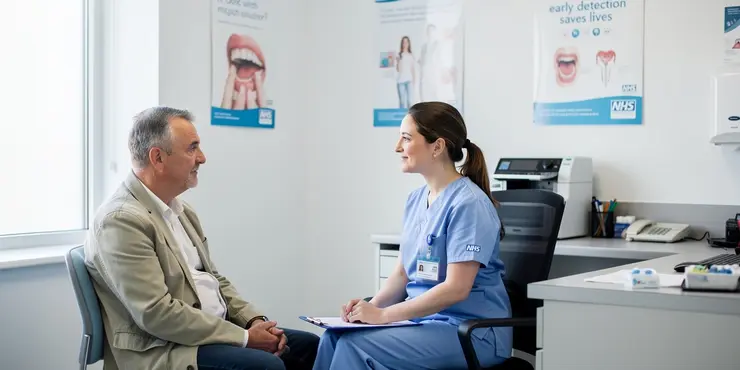
Mouth Cancer Awareness
Relevance: 100%
-
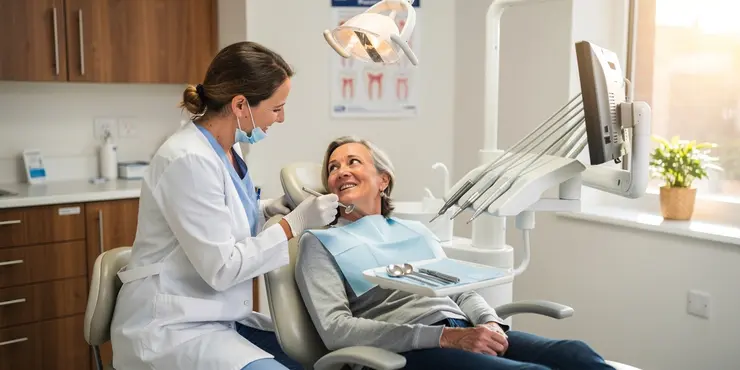
Mouth Cancer Infomercial
Relevance: 99%
-
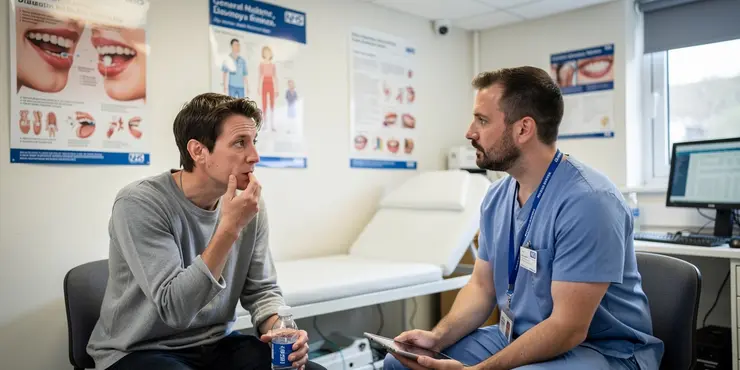
Coping with dry mouth
Relevance: 69%
-
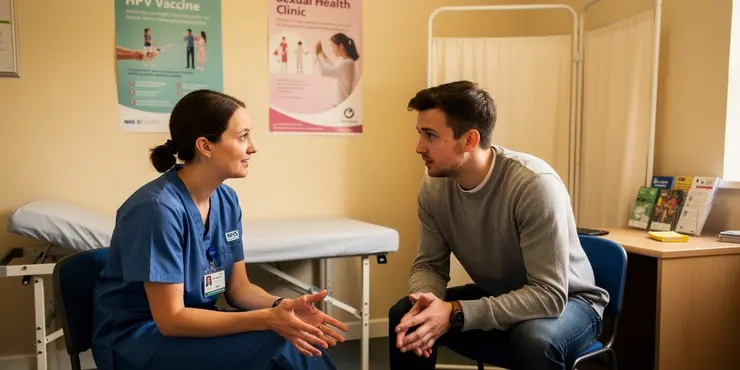
Can HPV lead to cancer?
Relevance: 42%
-

Head and Neck Cancer Diagnosis
Relevance: 40%
-

Royal Berkshire NHS Foundation Trust: Radiotherapy for head and neck cancers
Relevance: 39%
-
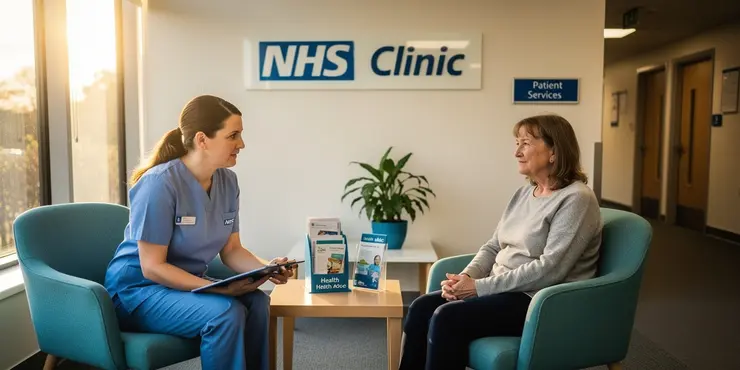
What is Cancer?
Relevance: 37%
-
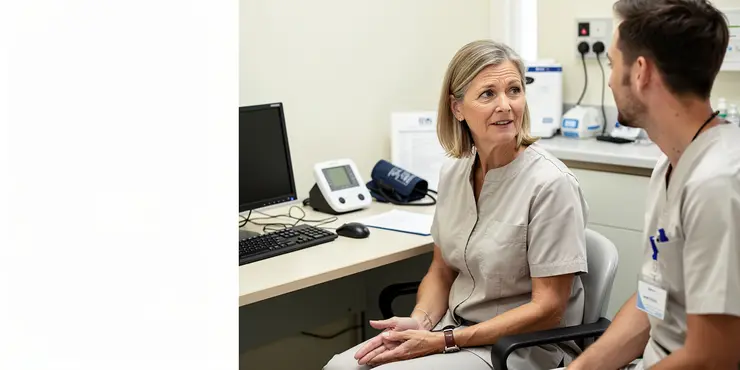
Ovarian Cancer
Relevance: 37%
-
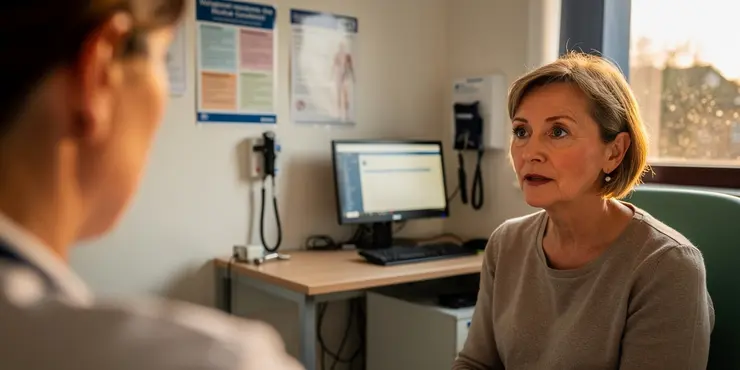
Vaginal Cancer
Relevance: 37%
-
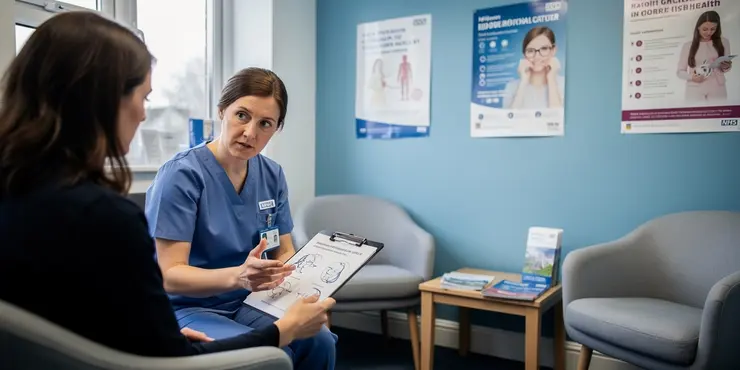
Endometrial Cancer
Relevance: 37%
-
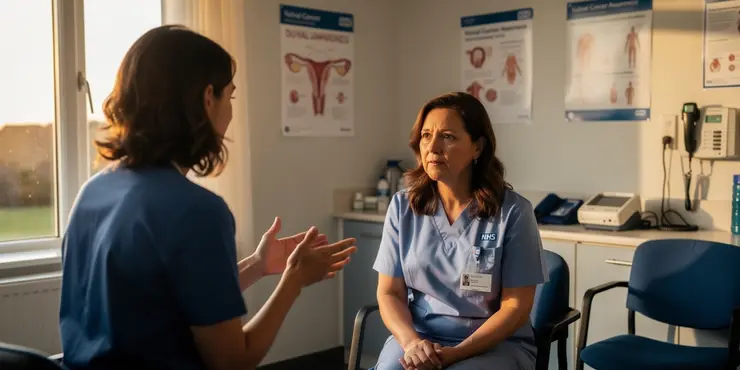
Vulval Cancer
Relevance: 37%
-

Endometrial Cancer
Relevance: 36%
-

Endometrial Cancer
Relevance: 36%
-
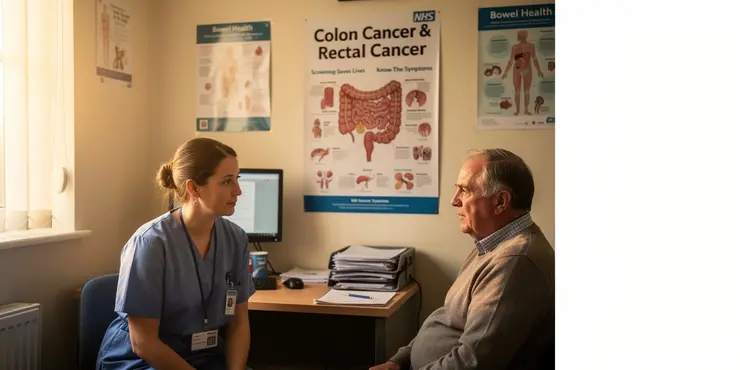
What is the difference between colon cancer and rectal cancer?
Relevance: 36%
-

What is cancer screening?
Relevance: 35%
-
What is testicular cancer?
Relevance: 35%
-

What is colorectal cancer?
Relevance: 35%
-
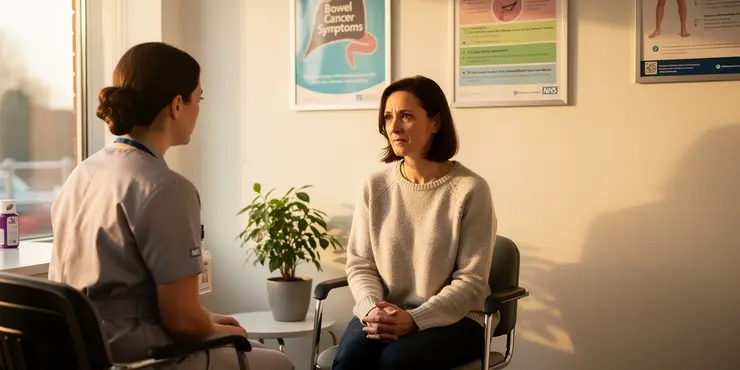
What is Bowel Cancer?
Relevance: 35%
-

Treating prostate cancer
Relevance: 35%
-
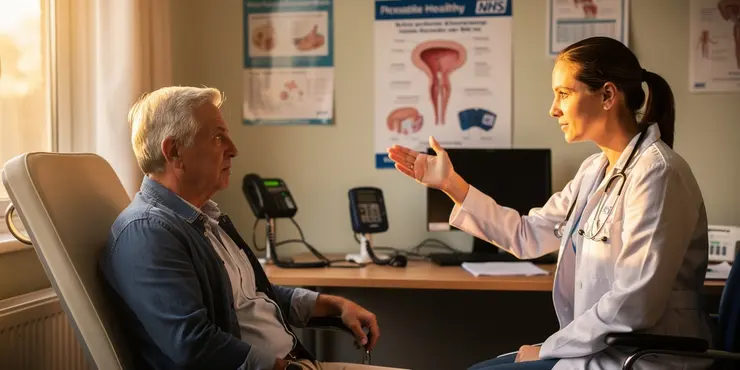
What is Prostate Cancer?
Relevance: 35%
-
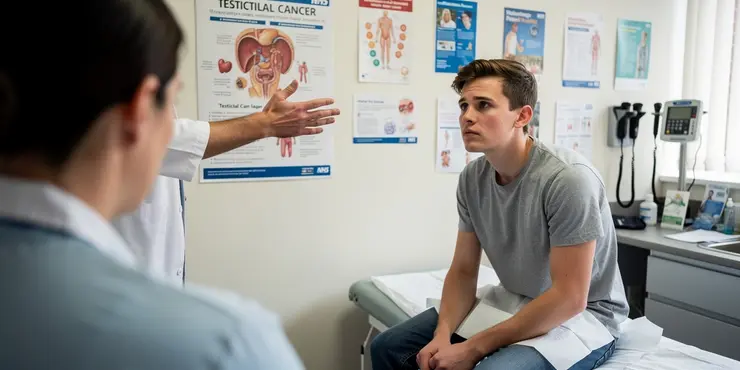
What is testicular cancer?
Relevance: 35%
-
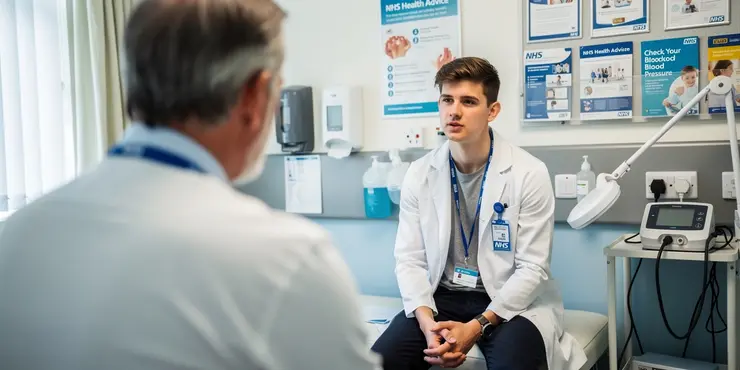
What is testicular cancer?
Relevance: 35%
-

Is testicular cancer treatable?
Relevance: 35%
-
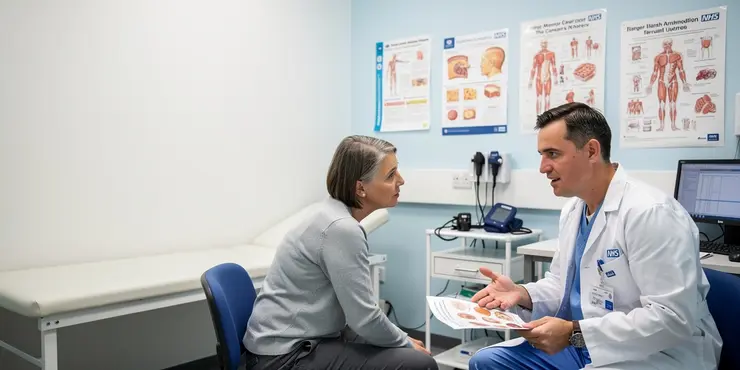
Skin cancer education
Relevance: 35%
-
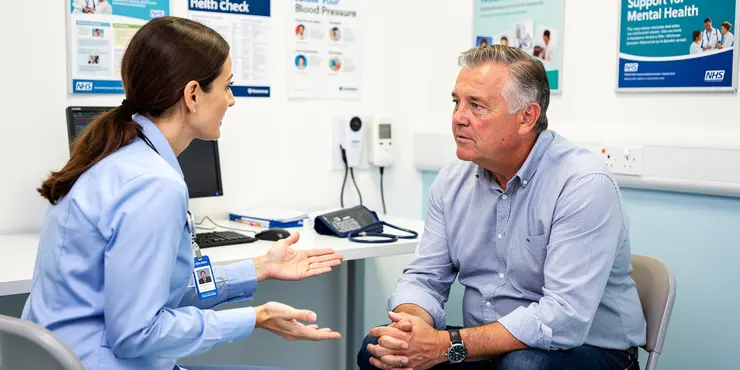
Living with prostate cancer
Relevance: 35%
-

What is Pancreatic Cancer?
Relevance: 35%
-
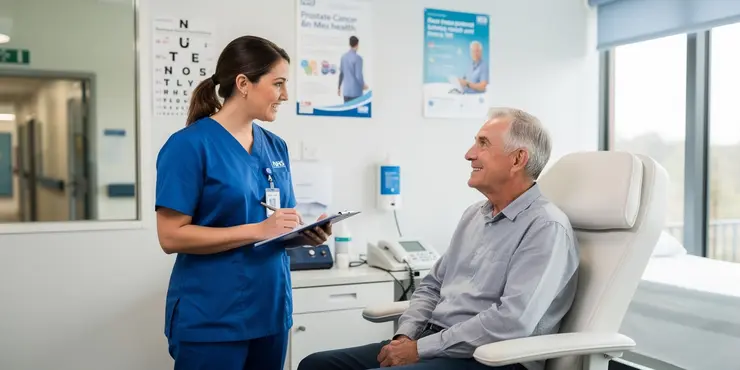
Breakthrough in Cancer Treatment Offers Hope for Prostate Cancer Patients
Relevance: 34%
-

How common is testicular cancer?
Relevance: 34%
-
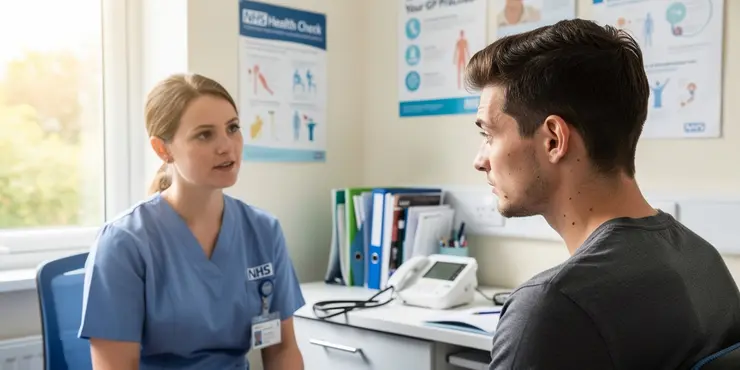
What causes testicular cancer?
Relevance: 34%
-
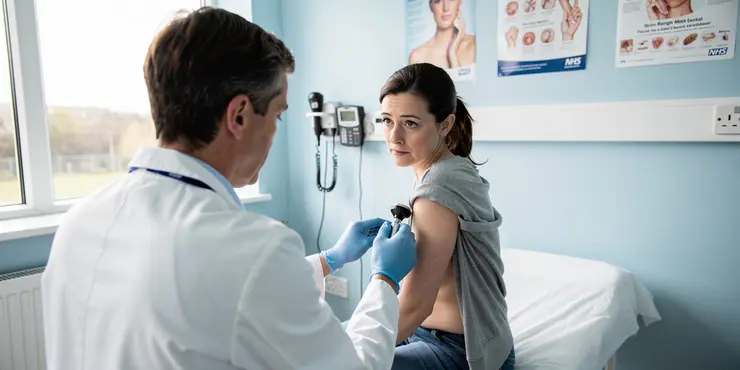
What is a skin cancer screening?
Relevance: 34%
-
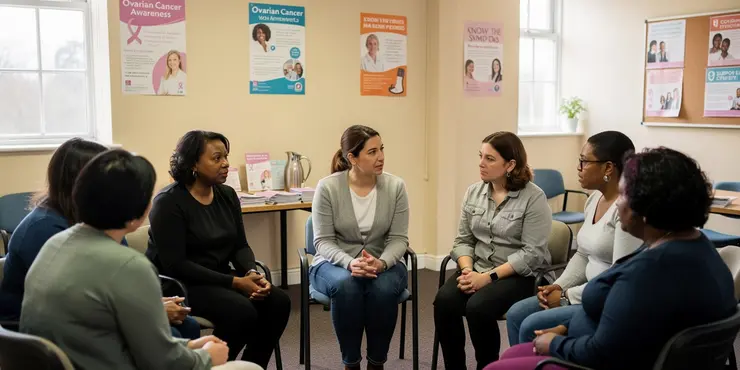
Raising awareness of ovarian cancer
Relevance: 33%
-
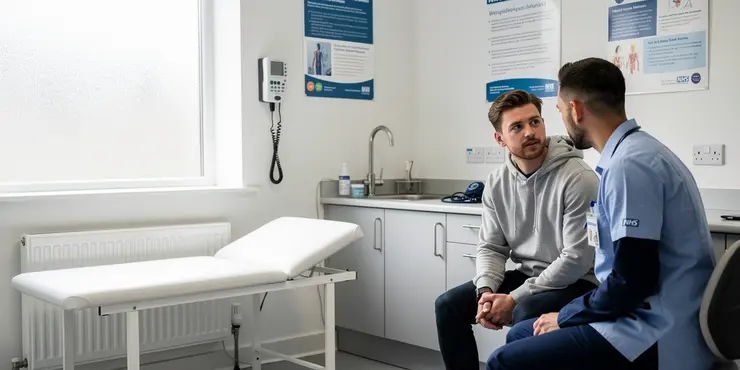
What are the stages of testicular cancer?
Relevance: 33%
-
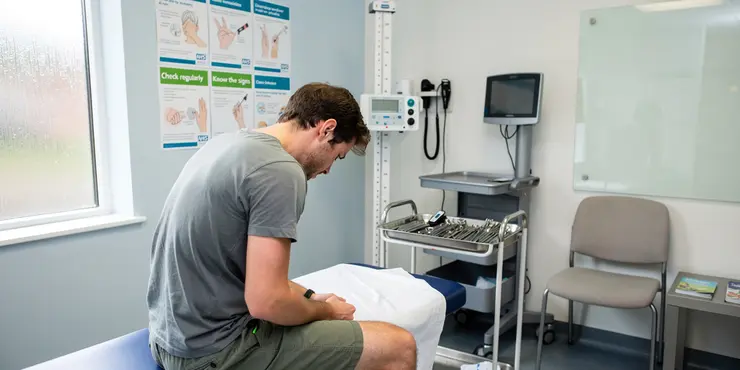
Who is at risk for testicular cancer?
Relevance: 33%
-

How is prostate cancer treated?
Relevance: 33%
-
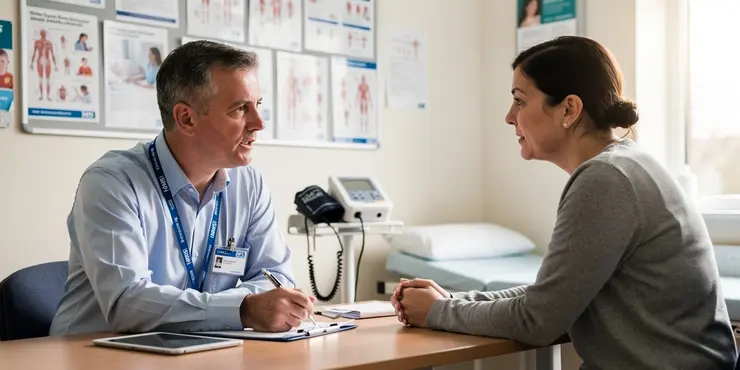
Why is there a surge in bowel cancer?
Relevance: 33%
-

How common is bowel cancer?
Relevance: 33%
-

What are the symptoms of testicular cancer?
Relevance: 33%
-
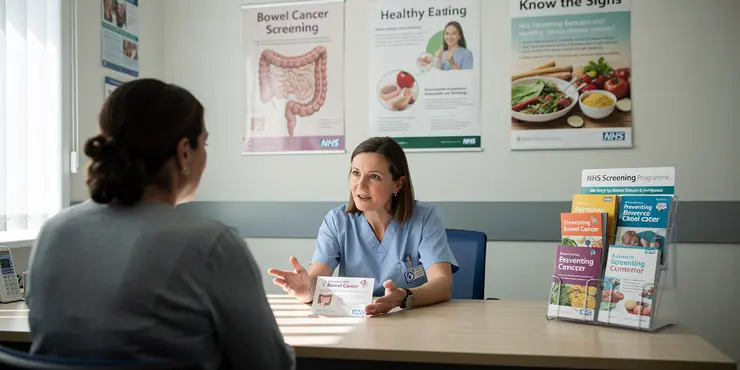
Can bowel cancer be prevented?
Relevance: 33%
-
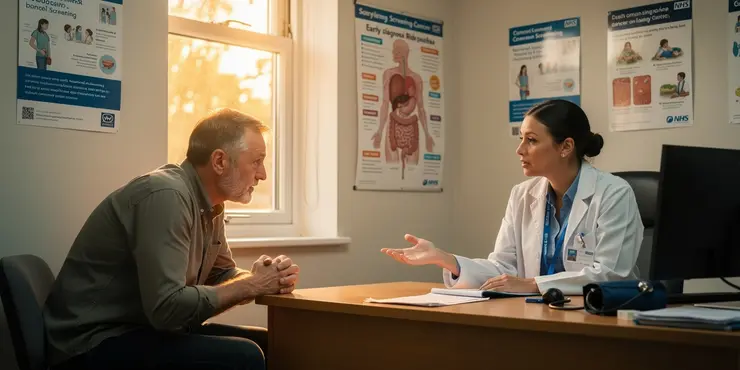
How is bowel cancer diagnosed?
Relevance: 33%
-

How is testicular cancer diagnosed?
Relevance: 33%
Mouth Cancer Awareness: Be Informed and Stay Safe
What is Mouth Cancer?
Mouth cancer, also known as oral cancer, is a type of cancer that develops in any part of the mouth or throat. It can affect the lips, tongue, cheeks, floor of the mouth, hard and soft palate, sinuses, and pharynx. Early detection and treatment are crucial for increasing the chances of successful outcomes.
Risk Factors
Several factors can increase the risk of developing mouth cancer:
- Smoking: Tobacco use in any form is a leading cause of mouth cancer.
- Excessive Alcohol Consumption: Heavy drinking can significantly raise the risk.
- Human Papillomavirus (HPV): Certain strains of HPV are linked to oral cancers.
- Sun Exposure: Prolonged exposure to the sun can cause lip cancer.
- Diet: A diet low in fruits and vegetables can contribute to risk.
Signs and Symptoms
Be vigilant about the following symptoms:
- Unexplained lumps or swellings in the mouth or neck.
- Persistent sores or ulcers that do not heal within three weeks.
- Unexplained bleeding or numbness in the mouth.
- Red or white patches in the mouth.
- Difficulty in chewing, swallowing, or moving the jaw.
- Changes in the voice, including hoarseness.
Diagnosis and Treatment
If you notice any symptoms, it is critical to seek medical advice promptly. Your GP may refer you to a specialist for further tests, such as a biopsy, to confirm the diagnosis. Treatment typically involves surgery, radiation therapy, chemotherapy, or a combination of these methods, depending on the stage and location of the cancer.
Prevention and Early Detection
Protecting yourself against mouth cancer includes:
- Quitting smoking and reducing alcohol consumption.
- Maintaining a healthy diet rich in fruits and vegetables.
- Practising good oral hygiene and having regular dental check-ups.
- Using lip balms with SPF to protect against sun exposure.
- Getting vaccinated against HPV.
Early detection through regular dental check-ups can significantly improve survival rates. If you experience any persistent symptoms, consult your doctor immediately.
Mouth Cancer Awareness: Learn and Stay Safe
What is Mouth Cancer?
Mouth cancer is a disease that can start in any part of the mouth or throat. It can affect the lips, tongue, cheeks, roof and floor of the mouth, sinuses, and throat. Finding it early and getting treatment quickly can help a lot.
Risk Factors
Things that can make mouth cancer more likely:
- Smoking: Using tobacco is a big cause of mouth cancer.
- Drinking a lot of alcohol: Drinking too much alcohol can also make it more likely.
- HPV Virus: Some types of this virus are linked to cancers in the mouth.
- Sunlight: Being in the sun too long can cause cancer on the lips.
- Diet: Not eating enough fruits and veggies can add to the risk.
Signs and Symptoms
Look out for these signs:
- Lumps or bumps in the mouth or neck that you can't explain.
- Sores in the mouth that don't heal in three weeks.
- Bleeding or numbness in the mouth that you can't explain.
- Red or white patches in the mouth.
- Trouble chewing, swallowing, or moving the jaw.
- Changes in your voice, like sounding hoarse.
Diagnosis and Treatment
If you see any of these signs, go to the doctor quickly. They might send you to a specialist who can do tests to check for cancer. If it is cancer, treatment can be surgery, radiation, or chemotherapy. Sometimes, doctors use more than one kind of treatment.
Prevention and Early Detection
To help stop mouth cancer, you can:
- Stop smoking and drink less alcohol.
- Eat lots of fruits and vegetables.
- Keep your mouth clean and visit the dentist often.
- Use lip balm with sun protection when outside.
- Get the HPV vaccine.
Going to the dentist for check-ups can help you find cancer early. If you have any signs that last, see your doctor right away.
Frequently Asked Questions
What is mouth cancer?
Mouth cancer, also known as oral cancer, refers to cancer that develops in any part of the mouth, including the lips, gums, tongue, or the roof and floor of the mouth.
What are the common symptoms of mouth cancer?
Common symptoms include persistent mouth sores, lumps, or thick patches inside the mouth, difficulty swallowing, a feeling that something is caught in the throat, and unexplained weight loss.
What are the risk factors for developing mouth cancer?
Risk factors can include tobacco use, excessive alcohol consumption, excessive sun exposure to lips, and infection with human papillomavirus (HPV).
How is mouth cancer diagnosed?
Diagnosis typically involves a physical examination, biopsy, and imaging tests such as X-rays, CT scans, MRI, or PET scans.
Is mouth cancer common in the UK?
Mouth cancer is less common than other types of cancer in the UK but there has been a rising incidence in recent years.
Can mouth cancer be prevented?
While not all cases can be prevented, risks can be reduced by avoiding tobacco and excessive alcohol, maintaining good oral hygiene, and having regular dental check-ups.
What treatments are available for mouth cancer?
Treatment options may include surgery, radiation therapy, chemotherapy, or targeted drug therapy, depending on the stage and location of the cancer.
What should I do if I notice symptoms of mouth cancer?
See a healthcare professional or dentist as soon as possible for an evaluation and possible referral to a specialist.
Is mouth cancer contagious?
No, mouth cancer is not contagious and cannot be spread from person to person.
How can I support someone with mouth cancer?
Offer emotional support, help them navigate medical appointments, and assist with daily tasks. Encourage them to follow their treatment plan and seek support groups.
Does HPV vaccination reduce the risk of mouth cancer?
Yes, vaccination against HPV can help reduce the risk of HPV-related mouth cancers.
Are there any lifestyle changes that can lower my risk of mouth cancer?
Yes, avoiding tobacco and heavy alcohol use, eating a balanced diet rich in fruits and vegetables, practicing good oral hygiene, and using sun protection for your lips can all help lower your risk.
How often should I have a dental check-up to screen for mouth cancer?
It is recommended to visit your dentist for a check-up at least once a year, but twice a year is often suggested for a more proactive approach.
What is the survival rate for mouth cancer?
The survival rate depends on the stage at which the cancer is diagnosed. Early detection generally leads to better outcomes, with a higher survival rate.
Where can I find more information about mouth cancer?
Trusted sources of information include the NHS website, Cancer Research UK, and the Oral Health Foundation.
What is mouth cancer?
Mouth cancer is when bad cells grow in the mouth. The mouth includes lips, tongue, and the inside of the cheeks.
You can use pictures and videos to learn more about mouth cancer. Ask a doctor or a dentist for help if you are worried. They can explain it to you.
Mouth cancer is a type of cancer. It can grow in parts of the mouth like the lips, gums, or tongue. It can also start on the roof or floor of the mouth.
What are the signs of mouth cancer?
Mouth cancer can have signs. Here are some signs:
- Sores in the mouth that do not heal.
- Lumps or bumps in the mouth.
- Loose teeth without a clear reason.
- Red or white patches in the mouth.
- Pain in the mouth or ear.
- Problems swallowing.
If you notice these signs, it is good to see a doctor.
Tools to help:
- Use a mirror to check your mouth.
- Ask a friend or family member to help.
- Write down any signs you see.
Some signs to watch for are:
- Sores in your mouth that won’t go away.
- Lumps or thick spots inside your mouth.
- Trouble swallowing food or drink.
- Feeling like something is stuck in your throat.
- Losing weight for no clear reason.
If you notice any of these signs, tell someone and talk to a doctor.
Tools that might help you understand more:
- Pictures or videos about this topic.
- Talking to someone who knows about it.
- Drawing what you feel or see.
What makes mouth cancer more likely to happen?
Things that can make the risk higher include smoking, drinking too much alcohol, being in the sun too much without protection on your lips, and having a virus called human papillomavirus (HPV).
Here are some tools and tips to help:
- Use picture cards to remember what these risk factors are.
- Take breaks when reading to avoid getting tired.
- Ask someone to read the information with you and explain it.
How do doctors find out if someone has mouth cancer?
Doctors check your mouth to see if you have mouth cancer. They might look inside your mouth to find any strange lumps or spots. If they see something unusual, they may take a tiny piece, called a biopsy, to look at it closely under a microscope.
If doctors think there might be more changes in your mouth, they could use special pictures, like X-rays or scans, to see inside. This helps them decide the best way to help you.
If you need extra help to understand, you can ask someone you trust to explain it to you. There are also pictures and videos online that show how doctors do these tests.
Doctors find out what is wrong by doing different tests. These tests include:
- Looking at your body. This is called a physical exam.
- Taking a small piece of tissue from your body to look at it closely. This is called a biopsy.
- Taking pictures of the inside of your body. They use special machines like:
- X-ray machines
- CT scan machines
- MRI machines
- PET scan machines
Tools like audiobooks or speech-to-text can help people understand better.
How common is mouth cancer in the UK?
Mouth cancer is not very common in the UK, but some people do get it. It is important to learn the signs of mouth cancer. If you see or feel something unusual in your mouth, like a sore or a lump, tell a doctor or dentist.
Ask someone you trust to help you understand if you need. You can also use tools like pictures or videos to learn more.
Mouth cancer is not as common as other cancers in the UK. But, more people are getting it now than before.
Can we stop mouth cancer from happening?
We can't stop all problems, but we can do things to help. Don't smoke or drink too much alcohol. Brush your teeth every day. Visit the dentist regularly to keep your mouth healthy.
What treatments can help if you have mouth cancer?
Treatment choices might be:
- Surgery: This is when doctors take out the cancer during an operation.
- Radiation therapy: This uses powerful rays to kill cancer cells.
- Chemotherapy: These are strong medicines that kill cancer cells.
- Targeted drug therapy: These are special medicines that target cancer cells specifically.
Doctors pick the right treatment based on where the cancer is in the body and how much it has spread.
If you find this information hard, you can:
- Ask a doctor or nurse to explain in easier words.
- Use drawings or models to help show what each treatment does.
- Watch videos made for kids about cancer treatments.
- Talk to a support group for people with cancer.
What should I do if I see signs of mouth cancer?
If you see any signs that worry you, tell someone. It's important to talk to a doctor or a dentist. They can help you.
Here are some things to look out for:
- Sores in your mouth that don't heal.
- Pain in your mouth that doesn't go away.
- Lumps or thick spots in your mouth or neck.
- If you find red or white patches in your mouth.
Ways to help you understand:
- Ask someone to go with you to the doctor, like a family member or friend.
- Write down your questions before you go.
- Use pictures or drawings to explain your feelings.
Go to a doctor or dentist as soon as you can. They will check you and might send you to another special doctor if needed.
Can you catch mouth cancer from others?
Mouth cancer is not something you can catch from someone else. It is not like a cold or the flu. Mouth cancer happens when cells in the mouth grow in a bad way.
It is important to go to the doctor or dentist for check-ups. They can help make sure everything is okay.
If you are worried, you can use tools like pictograms or ask someone you trust to help explain things. Talking about your worries with family or friends can also help.
No, mouth cancer is not something you can catch from someone else. It does not spread by being around other people.
How can I help someone with cancer in the mouth?
Be a good friend and make them feel better. Go with them to the doctor. Help them with things they need to do every day. Tell them to listen to the doctor and join groups of people who have the same problems.
Can the HPV vaccine help stop mouth cancer?
The HPV vaccine can lower the chance of getting mouth cancer. HPV is a virus that can cause cancer. Getting the vaccine can help protect you.
Here are some ways to understand better:
- Ask a doctor or nurse about the HPV vaccine.
- Read simple books or watch videos about HPV and cancer.
- Talk with a friend or family member about your questions.
Yes, getting the HPV vaccine can help lower the chance of getting mouth cancer from HPV.
Can I do things in my life to help stop getting mouth cancer?
Yes, you can do things to stay healthy. Don't smoke and don't drink too much alcohol. Eat lots of fruits and vegetables to stay strong. Brush your teeth and keep your mouth clean. When you go outside, use sun cream on your lips. This helps keep you safe.
How often should I see a dentist to check for mouth cancer?
Visit the dentist every 6 months for a check-up.
The dentist can look for mouth cancer signs.
If something feels wrong, tell your dentist.
Helpful Tips:
- Use a calendar to remember your appointments.
- Ask someone you trust to remind you.
- Write down anything unusual to tell your dentist.
It's a good idea to see your dentist at least once a year. Going twice a year is even better because it helps keep your teeth really healthy.
How many people get better after having mouth cancer?
Some people with mouth cancer get better. The chance of getting better is called the 'survival rate'.
To learn more, you can:
- Ask a doctor or nurse for help.
- Read simple health books.
- Use websites that talk about health in easy words.
How well someone gets better from cancer depends on when the cancer is found. Finding cancer early usually means people get better more easily and more of them survive.
Where can I learn more about mouth cancer?
Here are some easy ways to learn about mouth cancer:
- Ask a doctor or nurse to explain what mouth cancer is.
- Visit a library to find books with pictures about health.
- Look at websites with simple words and pictures about cancer.
- Watch videos made for kids about staying healthy.
- Ask someone you trust to help you find easy words about mouth cancer online.
You can use these ways to get the help you need:
- Have someone read out loud to you.
- Point to pictures if the words are hard.
- Ask questions if you are confused.
Good places to find information you can trust are the NHS website, Cancer Research UK, and the Oral Health Foundation.
Useful Links
This website offers general information and is not a substitute for professional advice.
Always seek guidance from qualified professionals.
If you have any medical concerns or need urgent help, contact a healthcare professional or emergency services immediately.
Some of this content was generated with AI assistance. We’ve done our best to keep it accurate, helpful, and human-friendly.
- Ergsy carfully checks the information in the videos we provide here.
- Videos shown by Youtube after a video has completed, have NOT been reviewed by ERGSY.
- To view, click the arrow in centre of video.
- Most of the videos you find here will have subtitles and/or closed captions available.
- You may need to turn these on, and choose your preferred language.
- Go to the video you'd like to watch.
- If closed captions (CC) are available, settings will be visible on the bottom right of the video player.
- To turn on Captions, click settings .
- To turn off Captions, click settings again.
More Items From Ergsy search
-

Mouth Cancer Awareness
Relevance: 100%
-

Mouth Cancer Infomercial
Relevance: 99%
-

Coping with dry mouth
Relevance: 69%
-

Can HPV lead to cancer?
Relevance: 42%
-

Head and Neck Cancer Diagnosis
Relevance: 40%
-

Royal Berkshire NHS Foundation Trust: Radiotherapy for head and neck cancers
Relevance: 39%
-

What is Cancer?
Relevance: 37%
-

Ovarian Cancer
Relevance: 37%
-

Vaginal Cancer
Relevance: 37%
-

Endometrial Cancer
Relevance: 37%
-

Vulval Cancer
Relevance: 37%
-

Endometrial Cancer
Relevance: 36%
-

Endometrial Cancer
Relevance: 36%
-

What is the difference between colon cancer and rectal cancer?
Relevance: 36%
-

What is cancer screening?
Relevance: 35%
-
What is testicular cancer?
Relevance: 35%
-

What is colorectal cancer?
Relevance: 35%
-

What is Bowel Cancer?
Relevance: 35%
-

Treating prostate cancer
Relevance: 35%
-

What is Prostate Cancer?
Relevance: 35%
-

What is testicular cancer?
Relevance: 35%
-

What is testicular cancer?
Relevance: 35%
-

Is testicular cancer treatable?
Relevance: 35%
-

Skin cancer education
Relevance: 35%
-

Living with prostate cancer
Relevance: 35%
-

What is Pancreatic Cancer?
Relevance: 35%
-

Breakthrough in Cancer Treatment Offers Hope for Prostate Cancer Patients
Relevance: 34%
-

How common is testicular cancer?
Relevance: 34%
-

What causes testicular cancer?
Relevance: 34%
-

What is a skin cancer screening?
Relevance: 34%
-

Raising awareness of ovarian cancer
Relevance: 33%
-

What are the stages of testicular cancer?
Relevance: 33%
-

Who is at risk for testicular cancer?
Relevance: 33%
-

How is prostate cancer treated?
Relevance: 33%
-

Why is there a surge in bowel cancer?
Relevance: 33%
-

How common is bowel cancer?
Relevance: 33%
-

What are the symptoms of testicular cancer?
Relevance: 33%
-

Can bowel cancer be prevented?
Relevance: 33%
-

How is bowel cancer diagnosed?
Relevance: 33%
-

How is testicular cancer diagnosed?
Relevance: 33%


